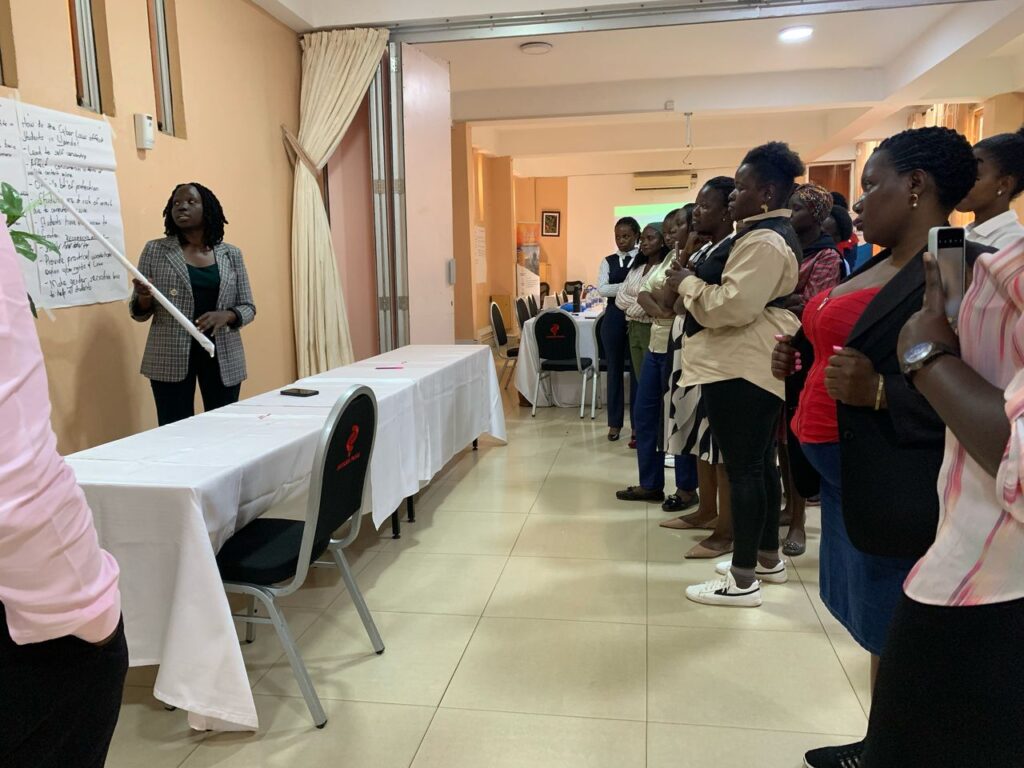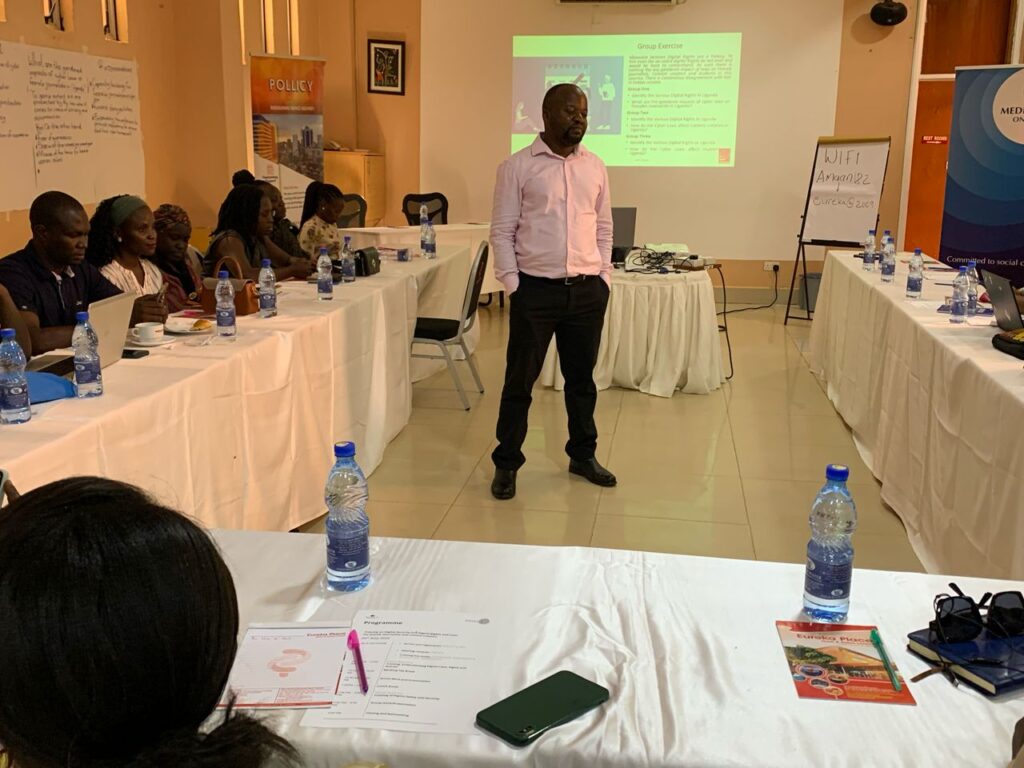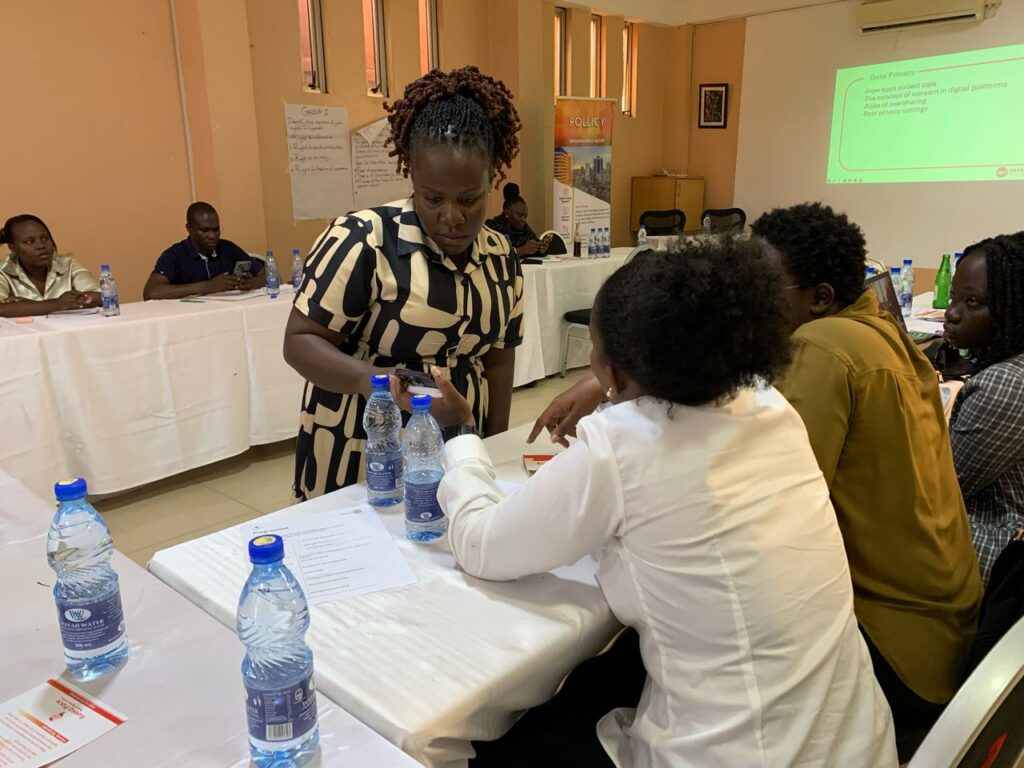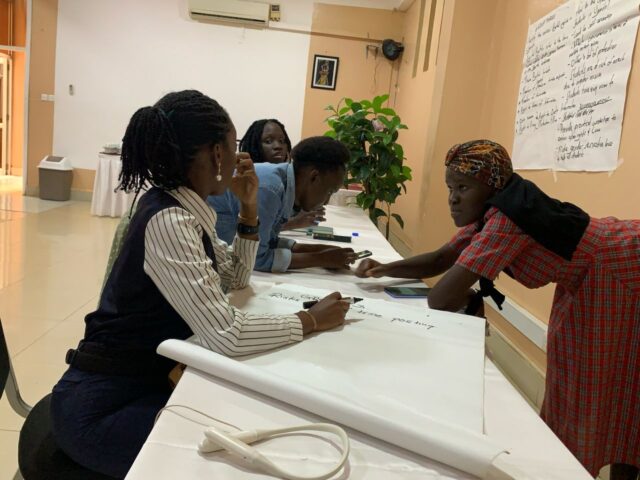
Over the years, cases of online harassment have been increasing in the country, despite the existence of laws regulating such behavior. One might reasonably ask: why do the perpetrators continue to engage in these acts if the law exists? Is the law being enforced effectively?
These and many other questions continue to cross people’s minds as they witness more individuals especially women being harassed online, often falling into such traps while the perpetrators remain free and go unpunished by the law.
This has also led many victims to suffer in silence, as they fear the numerous questions asked by the police questions that often end up shifting the blame back onto the victims, making them feel responsible for what happened to them.
Pollicy, with its focus on promoting a culture of responsible data use, has on several occasions trained various groups of people on online safety and security. The goal is to equip individuals with the knowledge needed to use online spaces freely and safely, without facing any form of violation. Among the groups trained are journalists especially female journalists civil society organizations, editors, and others.
Edrine Wanyama, the Legal Officer at Collaboration on International ICT Policy for East and Southern Africa (CIPESA) , notes that the failure of the state and relevant stakeholders to implement and enforce laws against online harassment is evident in the lack of police engagement in investigating known offenders who promote abusive content, ultimately preventing their prosecution.

He highlights the lawlessness in online communities, where people feel free to do whatever they want. Some seek likes, others crave attention from different audiences, and many are driven by a variety of motives.
However, Counsel Wanyama urges parents to take an active role in guiding their children’s online activities, noting that excessive exposure to the internet without restrictions or controls can lead to misuse.
He urges journalists to embrace their role as government watchdogs and to expose harmful activities taking place online, so that the public becomes more aware of the dangers associated with misuse of digital spaces, adding that journalists should strive to report in a way that educates the public on how to stay safe online and use digital platforms responsibly.
Communications Executive at Defenders Protection Initiative Noelyn Nassuuna, expresses that many people lack knowledge about cybersecurity and have not taken an active interest in protecting themselves online. As a result, they are vulnerable to hacking often without even realizing it.

She challenges those responsible for providing information and education on online safety to help people avoid falling into hacking traps, enabling them to use online spaces without fear of harassment.






